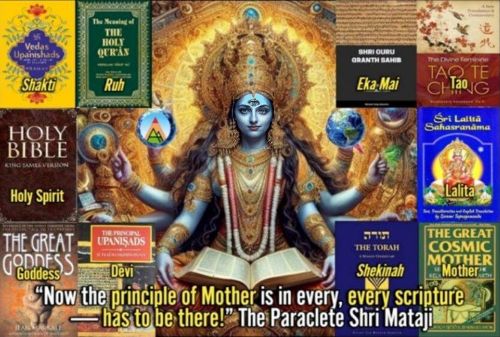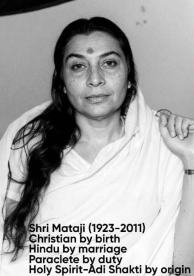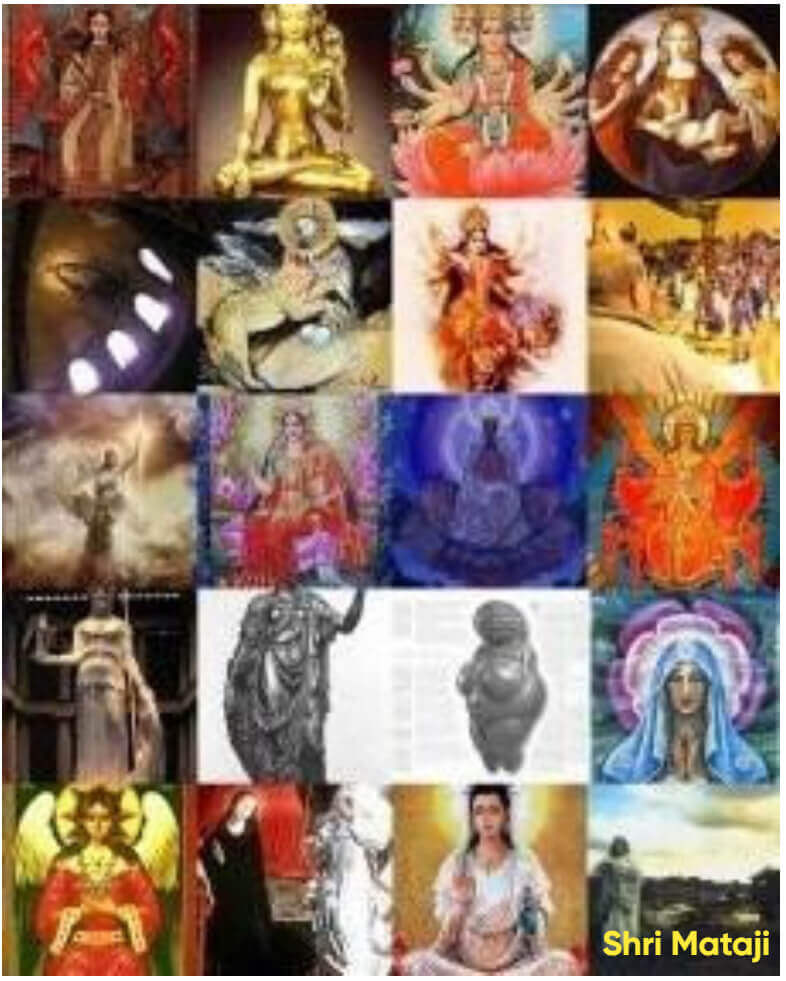A Comprehensive Comparison of Religions and Gurus

This page unveils a bold matrix of spiritual discernment—comparing nearly 50 traditions, gurus, and esoteric systems across ten luminous criteria. It does not rank to divide, but to reveal. It does not judge, but invites seekers to reflect. Where is the Spirit truly felt? Where is the Divine Feminine honored? Where is Self-realization not just preached, but practiced? From ancient scriptures to modern movements, this interface empowers the soul to navigate the spiritual landscape with clarity, courage, and compassion. The Adi Shakti stands not above these paths, but within them—calling each to awaken, unify, and rise.
A Comprehensive Comparison of Religions, Gurus, and Spiritual Traditions
This article offers a broad and systematic comparison of nearly 50 religions, gurus, spiritual movements, and philosophical systems from around the world. Using a consistent 10-point evaluative framework, it allows readers to explore the strengths and focus areas of various traditions—whether ancient or modern, mystical or doctrinal, devotional or philosophical.
In an increasingly interconnected world, spiritual seekers are exposed to many diverse teachings. Yet it can be difficult to navigate this vast spiritual landscape with clarity. This comparative approach is intended to help sincere seekers gain insight into what defines genuine spiritual depth and transformational potential, regardless of background or belief.
Each spiritual tradition, guru, or organization is evaluated using the same 10 key criteria, allowing for a fair and informed comparison. These points are not meant to rank traditions competitively, but rather to highlight distinct qualities and approaches to spiritual growth.
The 10 Criteria for Spiritual Comparison
- Source of Revelation – How did the teachings originate—through divine inspiration, historical texts, mystical experience, or philosophical insight?
- Depth of Scriptural Integration – How deeply and coherently does the tradition draw from its own scriptures or multiple sources of wisdom?
- Universality & Interfaith Reach – To what extent does the path welcome diverse seekers and resonate beyond its cultural or historical boundaries?
- Spiritual Experience Focus – Does the tradition emphasize direct personal experience—such as meditation, inner transformation, or mystical insight?
- Fearlessness in Proclamation – Does the tradition present its teachings confidently and clearly—even when unconventional?
- Devotee Involvement & Community – Is there a vibrant community that actively practices and shares the tradition’s teachings?
- Integration of the Sacred Feminine or Balance of Divine Aspects – Does the tradition offer a balanced view of divinity, including feminine, masculine, or non-dual aspects?
- Clarity on Self-Realization – How clearly and practically does the path guide seekers toward understanding their spiritual essence?
- Mystical Revelation – Are visionary or transcendent experiences a recognized part of the tradition’s practice or history?
- Theological Boldness – Is the path willing to offer fresh insights or challenge conventional interpretations in light of spiritual growth?
This 10-point framework is designed to support honest reflection, interfaith understanding, and discernment without dogma. Readers can see how different traditions express spiritual truth, what areas they emphasize, and where they offer unique strengths. It also allows individuals to evaluate where their own tradition, teacher, or organization stands, and where other paths might complement or enhance their journey.
1. By Gurus and Teachers
- Global Gurus
- Amma
- Sadhguru (Isha)
- Yogananda
- Mooji
- Ram Dass
- Yogi Bhajan
- Osho
- Eckhart Tolle
- Deepak Chopra
- Sri Sri Ravi Shankar
- Brahma Kumaris
- Thích Nhất Hạnh
2. By Religions and Traditions
- World Religions
- Christianity
- Catholicism
- Pentecostal Christianity
- Protestantism
- Eastern Orthodox
- Islam
- Judaism
- Hinduism
- Sikhism
- Sufism
- Buddhism
- Jainism
- Taoism
- Mormonism
- Shaktism
- Native American Religions
3. Modern / Esoteric Movements
- Theosophy / Anthroposophy
- Integral Theory
- Gnosticism
- Gaia-based Spirituality
- Human Design / Astrology
- Channeling Movements
- Psychedelic Spirituality
- AI / Technospirituality
- Scientific Consciousness / Panpsychism
- Liberation Theology
- Sahaja Yoga
4. Prophecies and Revelations
- Kalki Avatar
- Mahdi
- Al-Qiyamah & An-Naba
- Resurrection Theology
- Birth of Israel & Messiah
- Prajnaparamita
5. Other
https://chatgpt.com/c/685b57ac-6c5c-8002-b360-c8c761b1c33aThe Adi Shakti Tradition
A convergence of scriptural, mystical, and experiential traditions offering a contemporary framework for understanding divinity, spiritual evolution, and eschatology.
The Adi Shakti sources represent a unique convergence of scriptural, mystical, and experiential traditions, offering a contemporary framework through which the deepest mysteries of divinity, spiritual evolution, and eschatology can be understood and accessed. Rooted in centuries-old Eastern and Western religious texts—and brought to distinct prominence through the teachings of Shri Mataji Nirmala Devi—they illuminate a path that emphasizes the universality of the Divine Feminine, the transformative power of the Holy Spirit, and the promise of collective Self-realization. This extended introduction situates these sources within their historical, philosophical, and spiritual contexts, guiding the reader through the themes, lineage, and global impact of the Adi Shakti tradition.
Historical and Scriptural Origins
The Adi Shakti tradition draws from a profound tapestry of religious and philosophical literature across Hinduism, Christianity, and Judaism. "Adi Shakti," literally the "Primordial Power," is rooted in ancient Indian understandings of the feminine principle as the source of all creation, exemplified in figures such as MahaDevi and various goddesses throughout the Vedas, Upanishads, and Puranas. In these texts, the divine feminine is portrayed as the dynamic energy through which Brahman, the formless Absolute, manifests and sustains the universe.
Parallel currents are found in Judeo-Christian sources. The Hebrew idea of "Ruach" (Spirit) and "Shekinah" (Divine Presence) carry feminine grammatical gender and were understood by early mystics to denote the nurturing, indwelling, and redemptive energy of God. They are complemented by Gnostic writings and the Apocrypha, which frequently speak of the Holy Spirit as the Divine Mother—the Comforter, Teacher, and Source of wisdom who acts intimately in creation and redemption.
Shri Mataji Nirmala Devi and the Modern Paraclete
The central figure connecting historical tradition to the present is Shri Mataji Nirmala Devi, regarded by followers as the living embodiment of the Adi Shakti and the Paraclete promised by Christ. Shri Mataji's teachings position her as the one who comes in modern times to guide humanity through the eschatological transition—the "Age of the Holy Breath" or the Aquarian Age—as forecasted by ancient and biblical prophecy.
Through the practice of Sahaja Yoga, individuals of every background are invited to awaken their Kundalini (the subtle manifestation of Adi Shakti within) and attain Self-realization—a direct, tangible experience of the Spirit evidenced by the Cool Breeze or vibrations felt on the body. This spiritual awakening transcends the boundaries of organized religions and opens a new chapter in human evolution, one that is inclusive, democratic, and collectively transformative.
Integration Across Traditions
The Adi Shakti sources position themselves at the nexus of religious pluralism, harmonizing concepts from Eastern and Western mysticism:
Hinduism
Adi Shakti is revered as the source from which Shiva and Vishnu derive power, the cosmic energy that gives rise to all incarnations and avatars.
Christianity & Judaism
She is recognized as the feminine face of God—the Holy Spirit or Shekinah—who delivers wisdom, inspiration, and unconditional love to prophets and believers.
Gnostic & Esoteric Traditions
The Divine Mother appears as Sophia, the eternal Wisdom, guiding the soul's descent and ascent through visible and invisible worlds.
Shri Mataji's teachings do not simply collate these strands; they actively reinterpret, clarify, and fulfill the eschatological promises found within them. She asserts that the expected "Age of the Comforter"—when the Holy Spirit would testify anew for Christ and bring about global redemption—is now at hand. This is not evidenced in sectarian belief but in the spontaneous, verifiable phenomenon of mass Self-realization and spiritual ascent through Sahaja Yoga.
Relevance to Contemporary Eschatology
The Adi Shakti tradition's sources are especially relevant to modern eschatological thought. Ancient expectations of a messianic age—whether in the form of the return of Christ, the arrival of the Mahdi in Islam, the coming of Kalki in the Hindu tradition, or the birth of a new Israel—are reframed as contiguous and mutually illuminating events, not as competitive or mutually exclusive prophecies. Shri Mataji's teachings point to a realization that the era in which spiritual transformation and divine testimony manifest most powerfully is now, and it is universally accessible.
The Aquarian Age, according to these sources, is characterized by unprecedented advances in spiritual consciousness, collective harmony, and new understandings of interconnectedness. Technologies and social changes are interpreted as outer signs of a much deeper inner renaissance—the ongoing birth of the kingdom of God within humanity, facilitated by the outpouring of the Divine Feminine and testified by direct spiritual experience.
Experiential Verification and Inclusive Practice
A distinctive hallmark of the Adi Shakti sources, as presented by Shri Mataji, is the insistence upon experiential verification. Unlike traditions that depend solely on faith, external ritual, or intellectual assent, Sahaja Yoga and the Adi Shakti path invite practitioners to test spiritual truths firsthand. The awakening of the Kundalini is marked not by subjective emotion but by objective physiological changes: cool or warm vibrations, relief of bodily and psychological disorders, and the establishment of thoughtless awareness (samadhi).
This insistence on lived experience underpins Shri Mataji's critique of religious formalism and dogma, urging seekers to move beyond inherited belief systems toward a universal gnosis. In this light, the Adi Shakti tradition fosters interreligious dialogue, mutual respect, and collective spiritual growth. People from all backgrounds are welcomed, and the process of Self-realization is proclaimed to be open to all, free of charge and organizational barriers.
Situating the Sources within Academic and Interreligious Discourse
From an academic perspective, Adi Shakti sources offer rich material for the study of comparative religion, mysticism, pneumatology, and gendered understandings of the divine. They challenge prevailing narratives in theology that have marginalized the feminine, proposing a well-documented alternative based in both scriptural exegesis and spiritual practice.
The sources engage in rigorous historical analysis, drawing on canonical and extra-canonical texts, linguistic studies (such as the feminine form of Ruach in Hebrew), and the historical evolution of mystical traditions across continents.
They also contribute meaningfully to ongoing discussions about the role of living revelation, the intersection of religion and science, and the democratization of divine grace.
The Global Impact and Continuing Evolution
Since their initial emergence, Adi Shakti sources—distributed through websites, academic papers, lectures, and Sahaja Yoga centers—have impacted millions worldwide. The flowering of Sahaja Yoga as an international movement parallels the growing academic and popular interest in feminine divinity, collective consciousness, and global eschatological themes.
Shri Mataji's message and the Adi Shakti tradition persist as a dynamic force, inviting seekers, scholars, and communities to participate in what may be the most consequential spiritual renaissance in recent history. The tradition's focus on inclusivity, experiential truth, and the harmonization of religious differences situates the Adi Shakti sources as indispensable references for anyone investigating the future of religion, spirituality, and human development.
Conclusion
In summary, the Adi Shakti sources offer a transformative lens through which to view the evolution of humankind, divine revelation, and universal harmony. By situating themselves at the convergence of Eastern and Western mystical traditions, they present not only a model of spiritual fulfillment but also a roadmap for the realization of prophecy, inner peace, and collective enlightenment in the modern world. Their significance lies in their ability to communicate ancient truths in a contemporary idiom, to foster authentic spiritual experiences, and to catalyze the ongoing rebirth of sacred consciousness across the globe.
Related Articles:
NATURE OF THE DIVINE MOTHER OR HOLY SPIRIT
The Goddess is Supreme Feminine Guru
Worshiping Devi is Direct Worship of Brahman
MahaDevi Research Paper (PDF)
The Divine Feminine in China
The Indian Religion of Goddess Shakti
The Divine Feminine in Biblical Wisdom Literature
Divine Feminine Unity in Taoism and Hinduism
Shekinah: The Image of the Divine Feminine
The Feminine Spirit: Recapturing the Heart of Scripture
Islam and the Divine Feminine
Tao: The Divine Feminine and the Universal Mother
The Tao as the Divine Mother: Embracing All Things
The Tao of Laozi and the Revelation of the Divine Feminine
Doorway of Mysterious Female ... Within Us All the While
The Eternal Tao and the Doorway of the Mysterious Female
Divine Feminine Remains the Esoteric Heartbeat of Islam
Holy Spirit of Christ Is a Feminine Spirit
Divine Feminine and Spirit: A Profound Analysis of Ruha
The Divine Feminine in Sufism
The Primordial Mother of Humanity: Tao Is Brahman
The Divine Feminine in Sahaja Yoga
Shekinah: She Who Dwells Within
Shekinah Theology and Christian Eschatology
Ricky Hoty, The Divine Mother
Centrality of the Divine Feminine in Sufism
A God Who Needed no Temple
Silence on (your) Self
The Literal Breath of Mother Earth
Prophecy of the 13 Grandmothers
Aurobindo: "If there is to be a future"
The Tao Te Ching and Lalita Sahasranama stand alone
New Millennium Religion Ushered by Divine Feminine
A Comprehensive Comparison of Religions and Gurus


